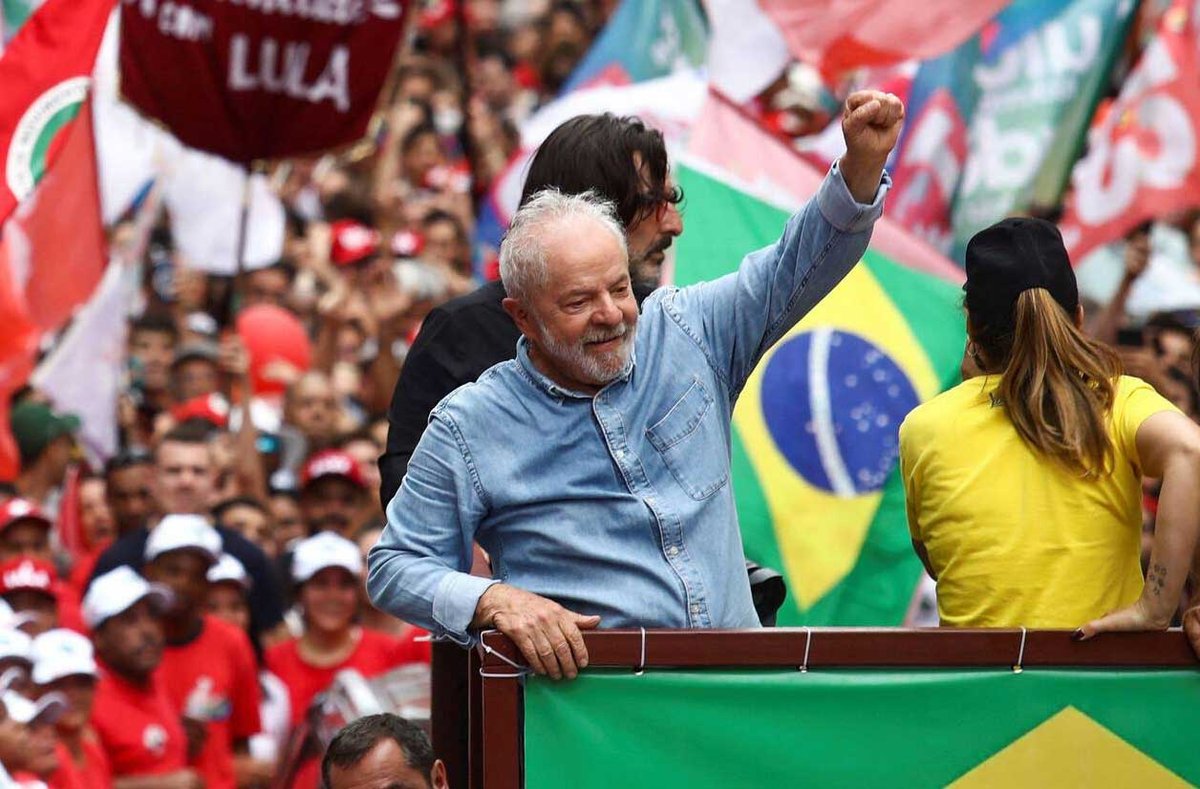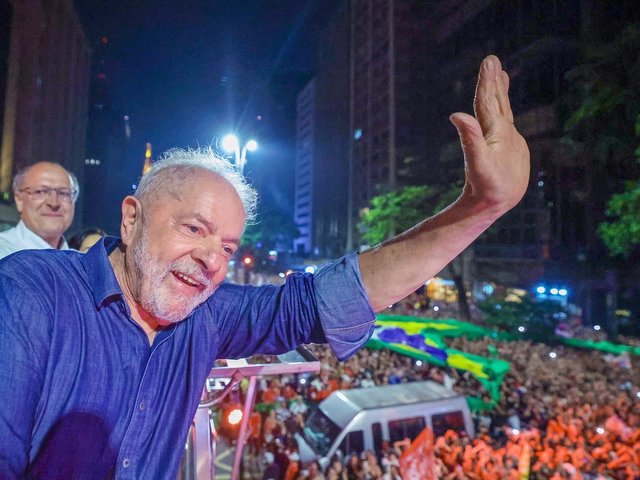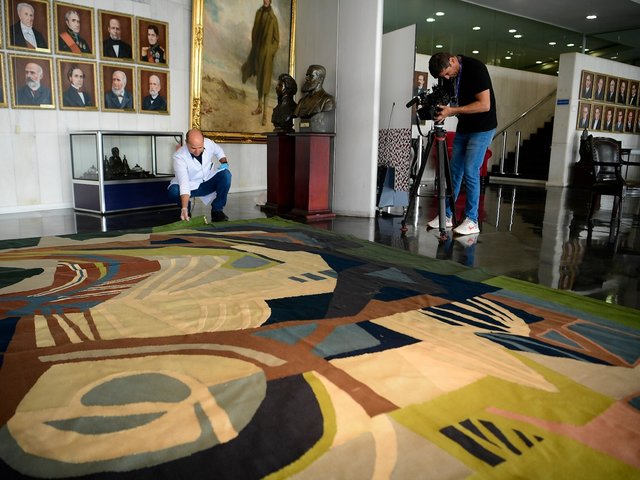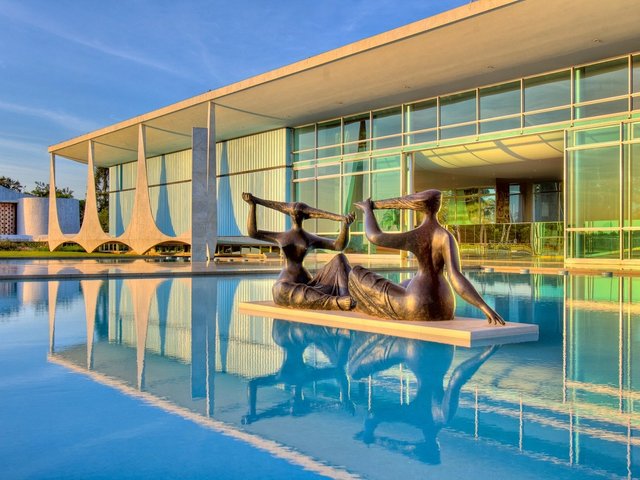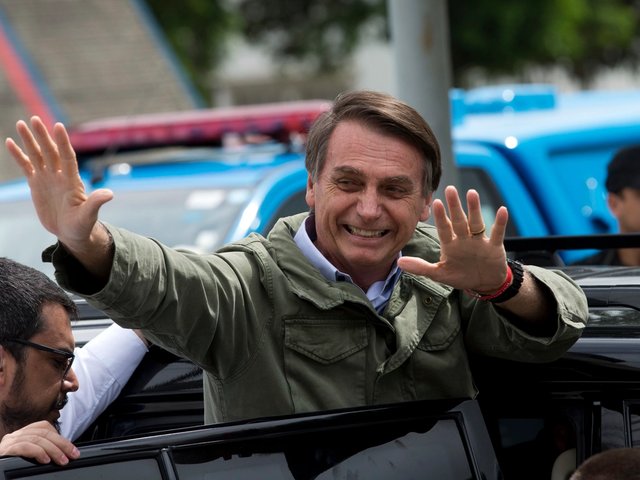Curators and artists are cautiously expecting the Brazilian president-elect Luiz Inácio Lula da Silva, known as “Lula”, to bolster the country’s arts sector and fully restore the culture ministry, following its obliteration under the former far-right president Jair Bolsonaro. Lula was sworn in as president for a third term on 1 January at a ceremony in Brasília; in his speech, the new leader vowed to rebuild a country in "terrible ruins".
The new president announced in December that the Bahian singer Margareth Menezes has been appointed as the culture minister of his incoming administration.
Lula’s transitional cabinet additionally included the culture secretary Márcio Tavares, the poet Antônio Marinho, the politician Áurea Carolina, the actress Lucélia Santos and Juca Ferreira, who served as culture minister between 2008 and 2010. The team will work to formulate public policies and redefine the role of the cultural sector in Brazilian politics, including bolstering funding that was significantly slashed during the Bolsonaro administration.
The move helps to draw a line under the “culture wars” raging in Brazil that have led to increased censorship, with some artists facing a backlash from conservative political groups.
“I feel hopeful about [Lula’s] return to power,” says Raphael Fonseca, the associate curator of Modern and contemporary Latin American art at the Denver Art Museum. “First, he will recreate the ministry of culture, an essential institution dismantled by the Bolsonaro government.”
Lula previously led the country from 2003 to 2010, winning two presidential elections. Late last year, he won the Brazilian presidential runoff election by a thin margin after serving more than a year in prison on corruption charges. A Brazilian journalist, who prefers to remain anonymous, says: “Bolsonaro got a majority in Congress and the Senate, which will make it very difficult to govern. Because Brazil is a multi-party system with many political parties—around 30—it remains to be seen if support will shift from those who do not belong to Bolsonaro’s party but are allies.”
Exhibitions were censored, influential professionals lost their jobs
Bolsonaro dissolved the ministry of culture on the first day of his presidency in 2019, creating instead an umbrella Ministry of Citizenship. Among Lula’s extensive campaign promises was a pledge to reinstate the ministry of culture and bolster funding allocated to the Rouanet Law, a federal tax incentive to fund cultural projects that Bolsonaro openly criticised for allegedly promoting corruption (he subsequently slashed the funding stream by more than 50%).
Complex challenges ahead
Lula’s resuscitation of the culture ministry has been welcomed by Brazilian art world figures, who remain cautious about the way forward. But some cultural commentators are questioning whether Menezes can fulfil her brief.
“The biggest challenge for the Lula administration [involved choosing] a minister of culture who understands the complexities, sophistication and cosmopolitanism of Brazilian art and culture, propelling it on to the world stage,” says the Brazilian art historian and curator Gaudêncio Fidelis. “This person has also to understand the network of museums under the umbrella of federal government that have been struggling, and invest enough resources to make them strong, inclusive, and able to generate cutting-edge knowledge.”
Fidelis adds that the new minister should also promote challenging museum conservation and exhibition programmes, and crucially try to withstand censorship from a number of sectors in Brazilian society, stressing that “it won’t be an easy task”.
Fidelis has been at the sharp end of the prevailing conservative ideology. An exhibition of queer art he organised in 2017 at the Santander cultural centre in Porto Alegre, southern Brazil, was shut down following pressure from extreme right campaigners. Queermuseum: Cartographies of Difference in Brazilian Art sparked a furore after protesters from the Free Brazil Movement (Movimento Brasil Livre), a right-wing pressure group, accused the exhibition, and by extension Fidelis, of promoting blasphemy, paedophilia and bestiality. Of the 264 works included in the show, the conservative advocates singled out works by four artists including Antonio Obá, who exhibited Et Verbum (2011), a bundle of communion wafers daubed with words such as “vulva” and “asshole”.
The row was symptomatic of the culture wars that have engulfed Brazil in recent years, with artists an easy target for the evangelical Christians (Pentecostal and neo-Pentecostal) that still form the bedrock of Brazilian society. Fonseca says that the impact is far-reaching. “It is insane to think that a multicultural country like Brazil has been threatened by a ‘cultural war’ during Bolsonaro’s presidency; institutions were afraid of doing specific projects, exhibitions were censored, influential professionals lost their jobs,” he says. “I even saw a recent case where an exhibition design [in Brazil] was scrutinised because a group of bureaucrats started to over-problematise one specific element. We hope to live in an environment where religious fundamentalism, and its hypocrisy, doesn’t become a daily phantom.”
The São Paulo-based artist Lucas Simôes believes there will be less fundamentalism, though he says that the elected Senate and Congress are “very conservative”. “Even recreating the ministry of culture will involve a lot of give and take, but it’s a path for a better future for the country,” Simôes says. But will artists and art institutions benefit in any way? “I believe so,” he says. “But I don’t think it will happen immediately; the damage that [Bolsonaro] did will take a while to fix.”


